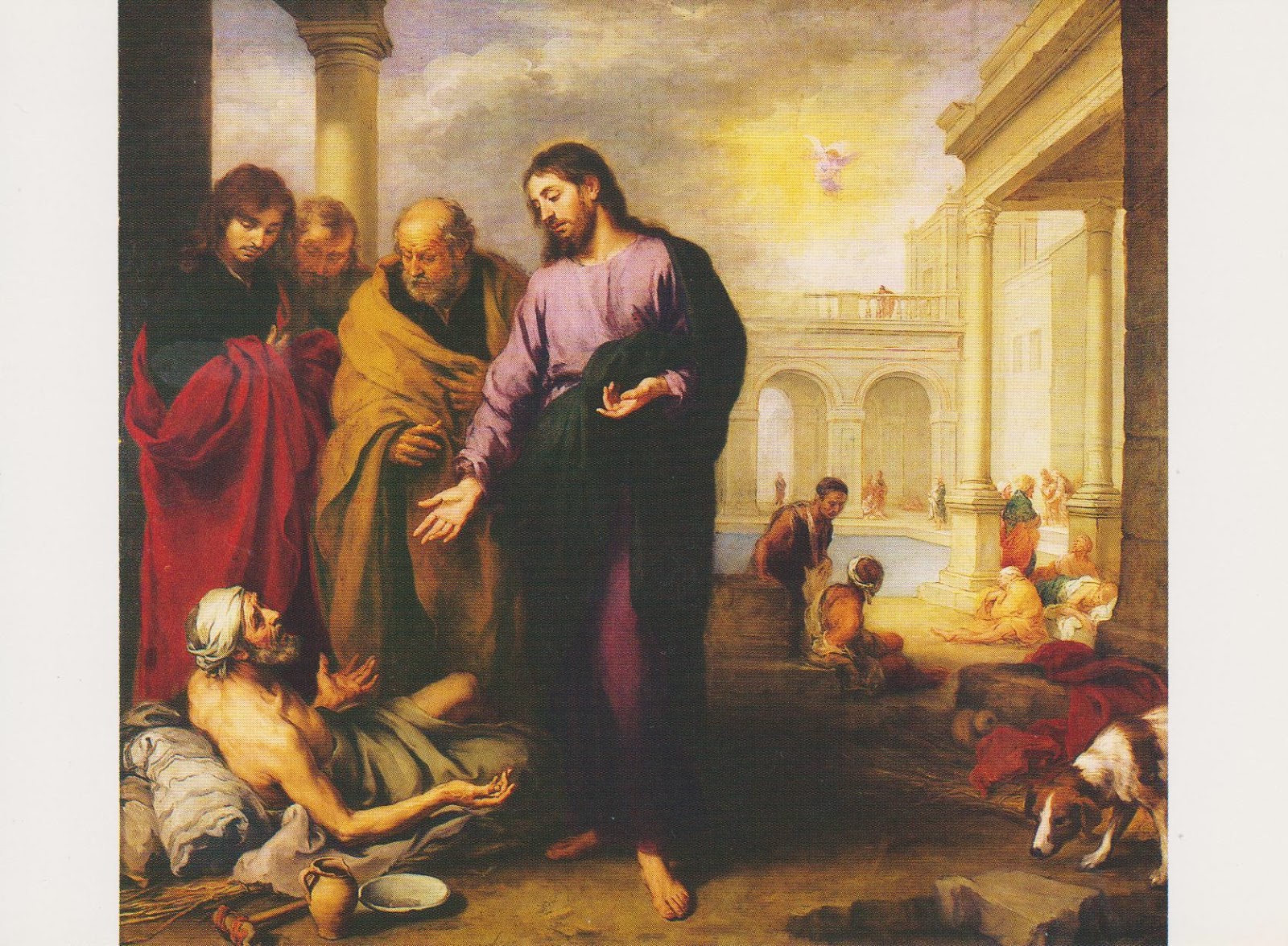 |
Van Gogh |
1st
February Trinity
Matthew
20: 1-16
The
kingdom of the heavens is like a man, the master of his house, who went out
early in the morning to hire workers for his vineyard. Agreeing to pay them one
denarius a day, he sent them out into his vineyard.
At
about 9 o’clock he went out and saw others standing in the marketplace, and he
said to them, “Go also into my vineyard, and I will give you whatever is
right.” So they went.
He
went out again at about noon and at 3 o’clock and did the same. At 5 o’clock he
went out and found others standing there, and he said to them, “Why do you
stand here all day idle?” They said, “Because no one has hired us.” He said,
“You, too, go into the vineyard.”
And
when evening came, the master of the vineyard said to his steward, “Call the
workers and give them their wages, beginning with the last ones hired and going
on to the first.”
Those
who had been hired at 5 o’clock came forward, and each received one denarius.
Therefore, when it was the turn of those who were hired first, they expected to
receive more. However, they too also received one denarius each. They took it,
but they began to grumble against the master of the house. “These men who were
hired last only worked one hour, and you have made them equal to us, who have borne
the burden of the work and the heat of the day.”
However,
he answered one of them, saying, “Friend, I am not being unjust to you. Did you
not agree with me for one denarius? Take what you have earned and go. I wish to
give to the man hired last the same as I give to you. Have I not the right to
do as I wish with what is mine? Or do you give me an evil look because I am
generous? Thus will the last be first and the first will one day be last. “
1st
Feb Trinity
Matthew
20: 1 – 16
In
last week’s reading, Christ infused the life-long paralytic with a jolt of His
fiery will. We can think of paralysis as having been the state of mankind in
general; and this week’s reading as the continuation of the story. In this
reading, it is as though Christ is saying to mankind: now that your will has
been fired up, let’s get working!
In
the story, the master of the house, who is the kingdom of the heavens, checks
on the work in progress every two hours. He engages more and more workers. At
the end of the day comes the reckoning. Each receives the agreed-upon one
denarius, enough for a day’s living, no matter whether he worked all day or
only one hour.
On
an external level this may seem unfair, until one realizes that this is a
metaphor for life. The kingdom of the heavens sees to it that each of us, sent
into the fields of earth, gets exactly what we need for each day, our daily
bread. We are not rewarded more than others for doing a full day’s work. Our
reward, our one denarius, is the ability, the gift really, of being able to
live for one more day, to have one more chance to contribute to the work of the
world. We are each given the one denarius of one more day to evolve, to suffer
and to grow; one more day to be grateful for the privilege of life.
Pulling
in the harvest requires a team. Early or late, we are all necessary for the
work of earth. Envy of someone else’s apparent good fortune, comparing it with
our own, is deadly. For envy is an acid that eats away, both at its container,
and at the social fabric into which we are all woven. To think that doing more,
suffering more, bearing more should mean greater rewards is to indulge in a destructive
sense of self-importance and entitlement that misses the point. For the rewards
that the kingdom of the heavens, the kingdom of the human heart on earth, are
simply: one more day; existence itself, which we owe, not to our own efforts,
but to the generosity of the creator. We are working for Him. And at the end of
the day, the only appropriate and healthy reaction is gratitude. Denise
Levertov embodies this humble but open gesture of soul:
A certain day became a
presence to me;
there it was,
confronting me—a sky, air, light:
a being. And before it
started to descend
from the height of noon , it leaned over
and struck my shoulder
as if with
the flat of a sword,
granting me
honor and a task. The
day’s blow
rang out, metallic—or
it was I , a bell awakened,
and what I heard was
my whole self
saying and singing
what it knew: I can.[1]
[1]
Denise Levertov, “Variation on a Theme by Rilke”, in Dancing with Joy, ed. by Roger Housden, p. 107.

















